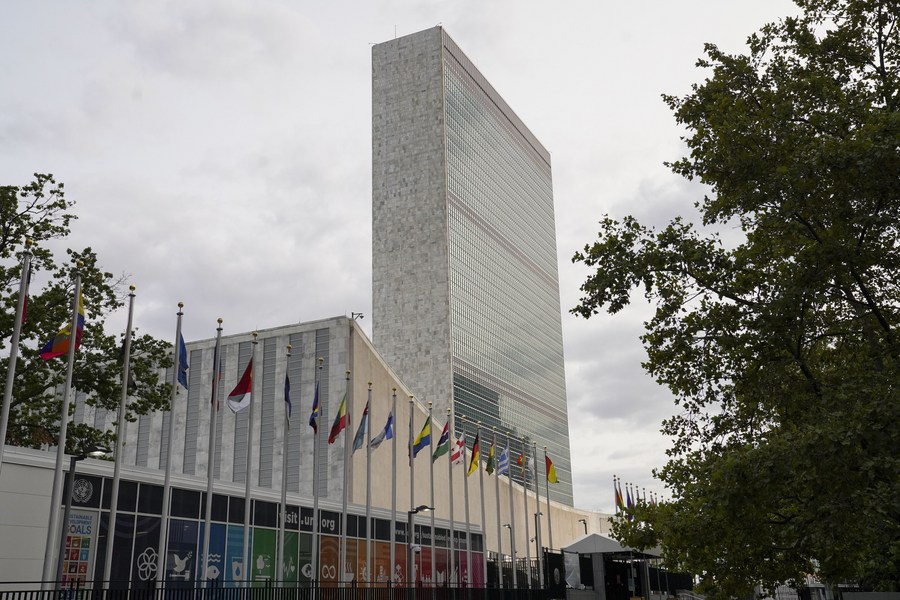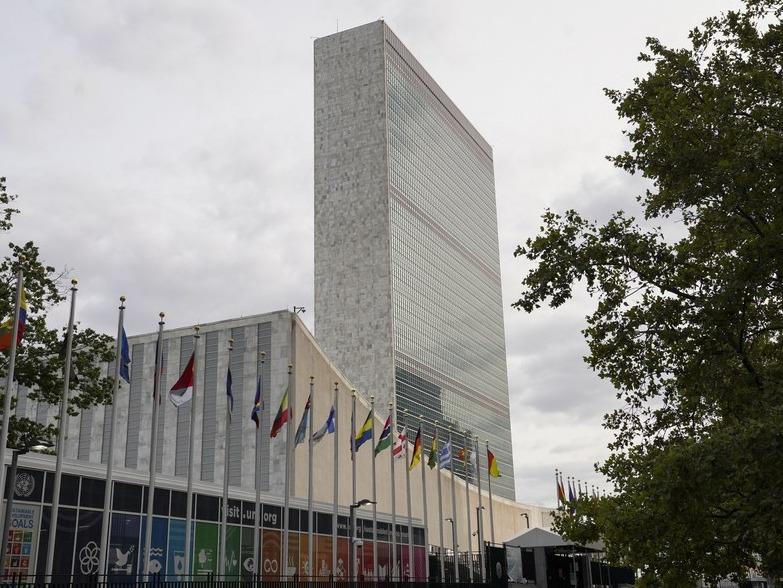
Photo taken on Sept. 14, 2020 shows the outside view of the United Nations headquarters in New York, the United States. (Xinhua/Wang Ying)
"We hope that the (UN) Secretariat could optimize the budget allocation to ensure development is prioritized with adequate and sustainable financial resources, in order to respond to the actual difficulties and concerns of developing countries, and promoting the implementation of the 2030 Sustainable Development Agenda," a Chinese envoy said.
UNITED NATIONS, Oct. 12 (Xinhua) -- China hopes the United Nations could prioritize its financial resources for development to better reflect the needs and concerns of developing countries, a Chinese envoy said on Wednesday.
Cheng Lie, counsellor of the Chinese Permanent Mission to the United Nations, made the remarks at a meeting of the Fifth Committee of the UN General Assembly, at which UN Secretary-General Antonio Guterres presented the program plan and the proposed program budget for 2023 of the world body.
In the current situation, the vast developing countries are facing bigger challenges in economic recovery and looking forward to better support from the United Nations. However, the budget level of development sections has too little increase to reflect the demand and appeal of developing countries, Cheng said.
"We hope that the (UN) Secretariat could optimize the budget allocation to ensure development is prioritized with adequate and sustainable financial resources, in order to respond to the actual difficulties and concerns of developing countries, and promoting the implementation of the 2030 Sustainable Development Agenda," said the counsellor.
China notes with concern that under section 24, the Secretariat for the first time includes resources to implement the mandates expected to be adopted in the name of new and expanded mandates, Cheng noted.
Pre-judging the mandate of the General Assembly or the UN Human Rights Council and front-loading the potential resources into budget section goes against the basic principle of "mandate first, programme next, budget last," he said.
The program plans approved by the General Assembly lay the basis for program budget, which reflects program plans from the perspective of finance. They commonly ensure that the United Nations would be able to accurately implement mandates and priorities of member states. Neither of them should be undermined or ignored. Any changes in the budget modality should not weaken or cut off the relations in-between, Cheng said.




 A single purchase
A single purchase









